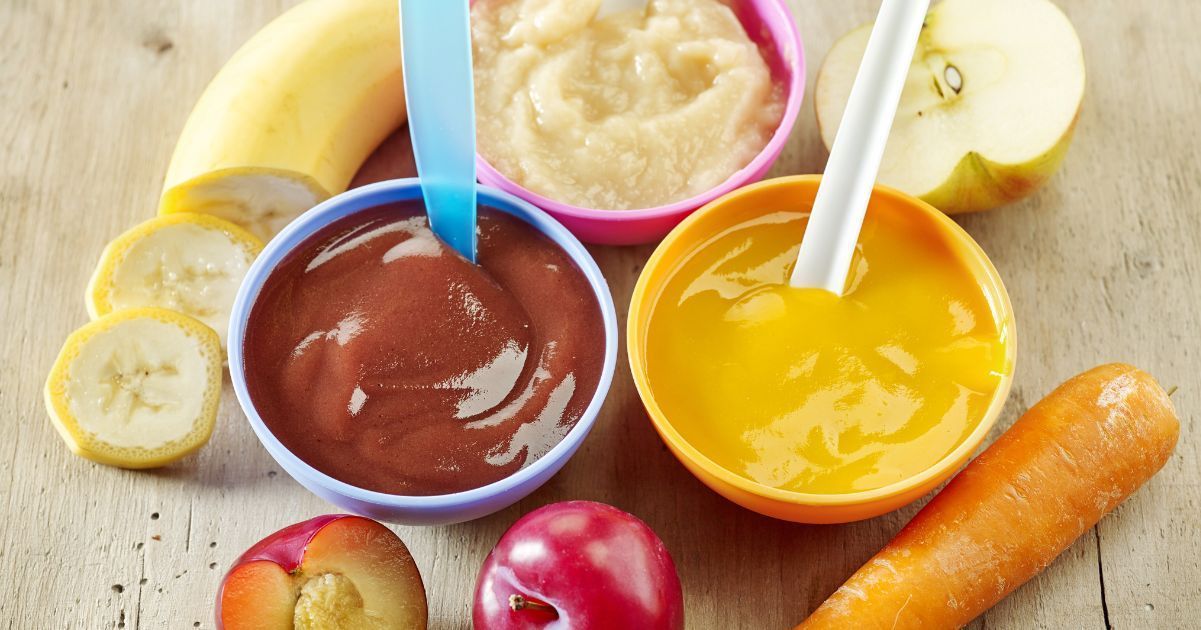Trying to decide on the best formula for your little one can be an overwhelming process – with so many options on the market with so many different ingredients promising so many different benefits for your little one, how do you know which one to pick? What should you look for on the label? What should you be avoiding? Let’s go over the main types of formulas, & what the benefits are to each, as well as some easy ways to pick out the right one for you.
Organic Cow’s Milk Formula
One of the most popular formulas on the market is organic cow’s milk– this is certainly the most popular type of infant formula, and contains at least 95% organic ingredients. You can also be assured that the product is free from preservatives, toxins, artificial colors, and artificial flavors. Non-organic cow’s milk is still made from a cow, however you’re risking exposure to hormones, chemicals, and pesticides since it is not organic.
Organic Goat’s Milk Formula
Another popular option is organic goat’s milk formula, which is very similar to dairy-based formulas in terms of nutrients. But, because it’s made from goat milk which contains the A2 milk protein (vs. A1 for cow’s milk), it may be easier for some babies to digest who are intolerant to cow’s milk. Organic goat’s milk is non-GMO and free from preservatives, toxins, etc. Unlike regular cow’s milk however, regular goat’s milk still has the A2 vs. A1 milk protein, and can be easier to digest as well.
Soy Formula
Soy products are becoming an increasingly popular option, as they’re a great option for any little one who may have a sensitivity to dairy. While it still carries the nutrients your little one needs, it’s important to talk to your pediatrician before making this switch, as it’s certainly not suitable for all babies. Parents can also consider a plant based formula, which is similar to soy products in the sense that they are made without using animal products.
Things to Consider for when Selecting Baby Formula
When it comes to deciding on the best formula for your baby’s needs, you’re going to want to prioritize organic ingredients. What does this mean? You’re going to want to look for the labels that not only say they’re organic, but also advertise that they’re free from preservatives, toxins, artificial colors, and artificial flavors. To that end, look for key nutrients on the back that consist of DHA, ARA for brain development, prebiotics & probiotics for immune and gut health.
Other things to look for when doing research include strong reviews from other parents– certain companies will promote their own products, so you’ll definitely want to steer clear of any reviews that are “sponsored.”
While there's an abundance of information about what kinds of nutrients to look for and prioritize in your formulas, there’s an equal amount that you’ll want to avoid. Because the US has a much larger range of standards for organic baby formula, even the best organic formulas can have lower quality ingredients.
Because of this, try to avoid processed or refined sugars, as manufacturers use these because they are cheaper than lactose, which they should be using. Look for corn syrup solids (glucose syrup solids), maltodextrin (a partially hydrolyzed starch derived from corn, rice, or potatoes), sugar, or brown rice syrup.
You’ll also want to avoid any added oils using hexane. DHA and ARA are important to have in baby formula, because they are essential fatty acids that are important for both brain development and eye development. That being said, specific types of DHA and ARA – C. Cohnii oil (DHA) and M. Alpina oil (ARA) are processed using hexane (a neurotoxic petroleum-based solvent), which is a big no no. Another oil to avoid is palm oil, as it reacts with calcium, and causes the formation of “soaps” in the baby’s intestines (which can cause digestive issues).
Other key ingredients to avoid include Carrageenan, Synthetic Nutrients Extracted Using Chemical Solvents like lutein, lycopene, nucleotides, taurine, l-carnitine and l-methionine, and soy, which can be problematic for babies because of their phytoestrogen content.
Conclusion
In conclusion, choosing the right infant formula can be overwhelming, but understanding the options simplifies the process. Organic cow’s milk formula and organic goat’s milk formula offer high-quality ingredients, with goat’s milk potentially being gentler on digestion. Soy formula is suitable for dairy-sensitive babies, but always consult a pediatrician before making the switch. Prioritize organic ingredients and essential nutrients like DHA and ARA, while avoiding added sugars, oils processed with hexane, and harmful additives. By scrutinizing labels and seeking trusted reviews, parents can confidently select the best nutrition for their baby's development.
Share on Social Media
We Serve Families in All of the New England States and Beyond
Select a state to learn more.
-
Connecticut
ButtonNewborn Care, Postpartum Doulas, Night Nannies
-
Massachusetts
ButtonNewborn Care, Postpartum Doulas, Night Nannies
-
Maine
ButtonNewborn Care, Postpartum Doulas, Night Nannies
-
New Hampshire
ButtonNewborn Care, Postpartum Doulas, Night Nannies
-
Rhode Island
ButtonNewborn Care, Postpartum Doulas, Night Nannies
-
Vermont
ButtonNewborn Care, Postpartum Doulas, Night Nannies
AREAS OF SERVICE
We serve families in all
New England states:
MA, CT, ME, NH, RI, VT
And the entire US.
All Rights Reserved | Gentle Giraffes LLC | Privacy Policy | Web Accessibility | Website Design Dionne Katinas | Web Development by Local Business First
















